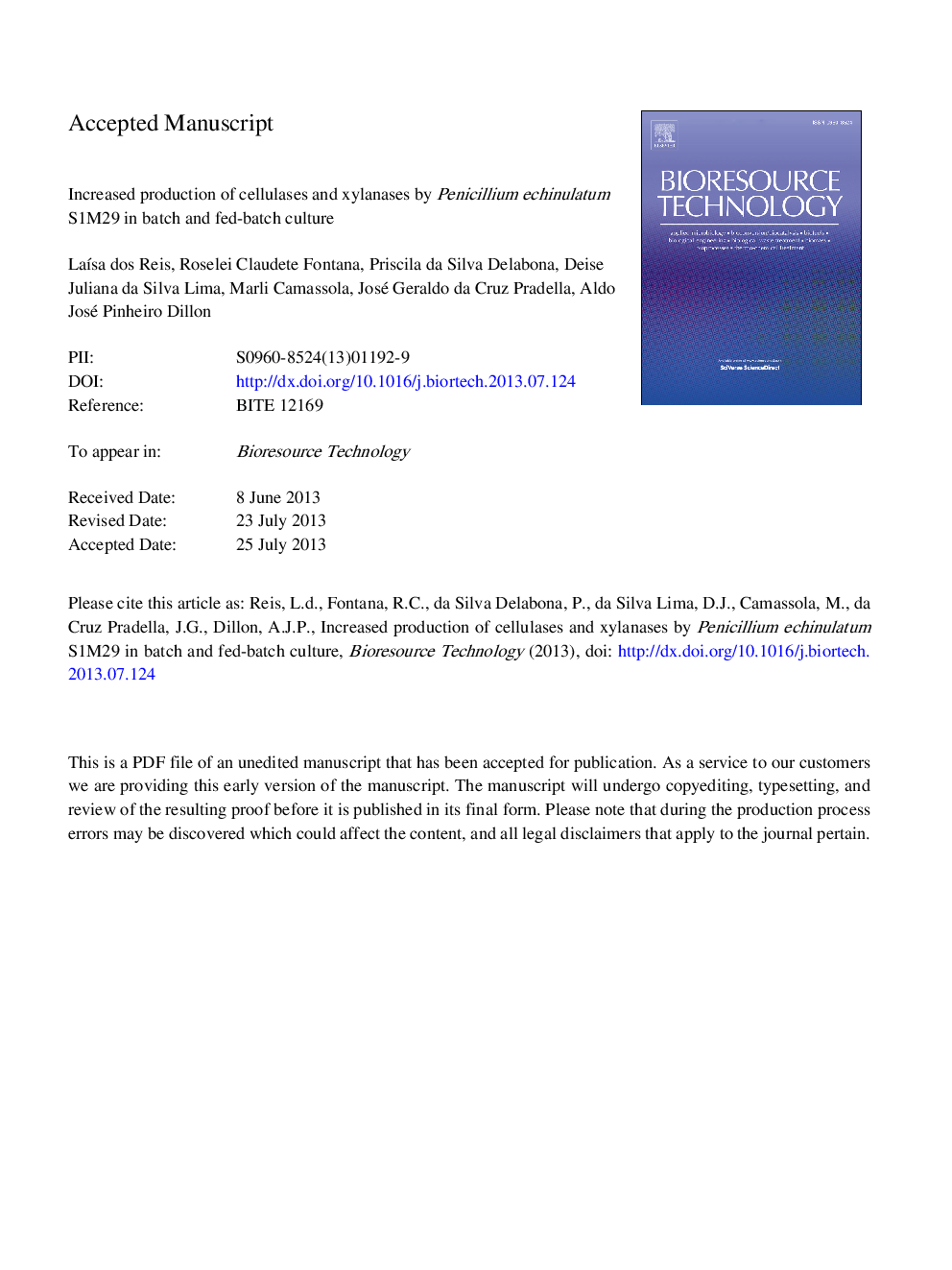| Article ID | Journal | Published Year | Pages | File Type |
|---|---|---|---|---|
| 7081034 | Bioresource Technology | 2013 | 25 Pages |
Abstract
The development of more productive strains of microorganisms and processes that increase enzyme levels can contribute to the economically efficient production of second generation ethanol. To this end, cellulases and xylanases were produced with the S1M29 mutant strain of Penicillium echinulatum, using different concentrations of cellulose (20, 40, and 60 g Lâ1) in batch and fed-batch processes. The highest activities of FPase (8.3 U mLâ1), endoglucanases (37.3 U mLâ1), and xylanases (177 U mLâ1) were obtained in fed-batch cultivation with 40 g Lâ1 of cellulose. The P. echinulatum enzymatic broth and the commercial enzyme Cellic CTec2 were tested for hydrolysis of pretreated sugar cane bagasse. Maximum concentrations of glucose and xylose were achieved after 72 h of hydrolysis. Glucose yields of 28.0% and 27.0% were obtained using the P. echinulatum enzymatic extract and Cellic CTec2, respectively.
Related Topics
Physical Sciences and Engineering
Chemical Engineering
Process Chemistry and Technology
Authors
LaÃsa dos Reis, Roselei Claudete Fontana, Priscila da Silva Delabona, Deise Juliana da Silva Lima, Marli Camassola, José Geraldo da Cruz Pradella, Aldo José Pinheiro Dillon,
